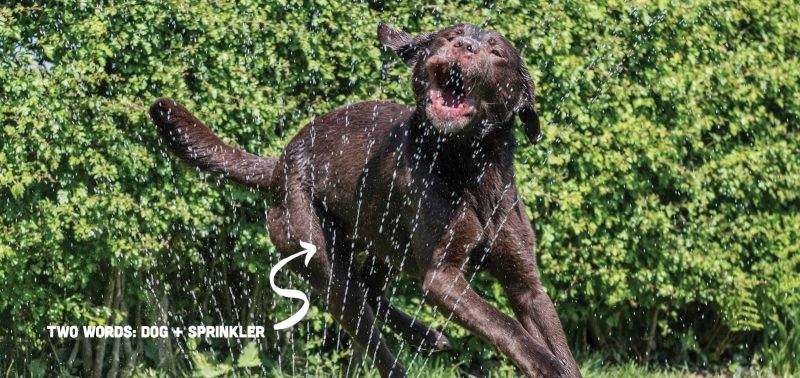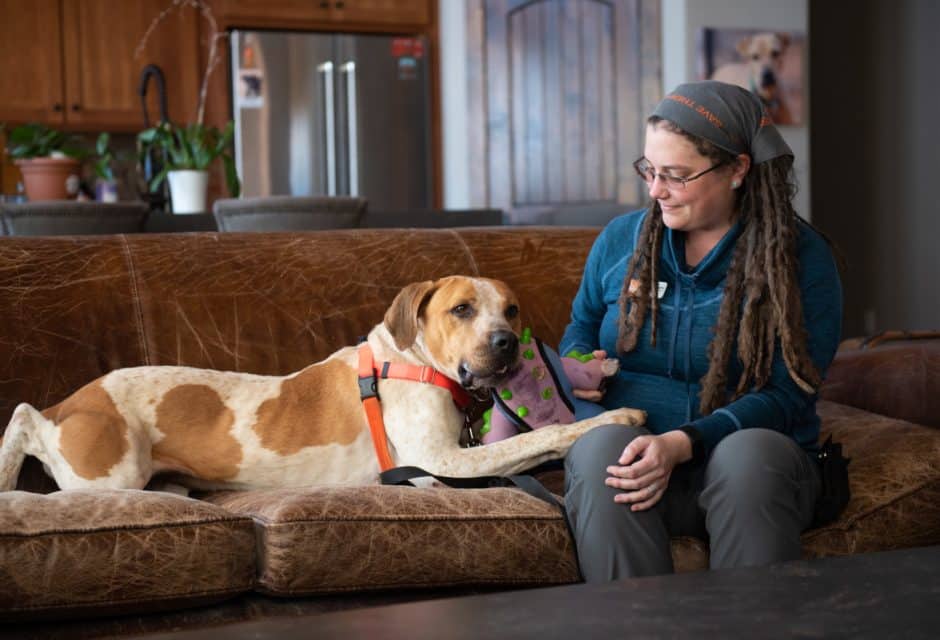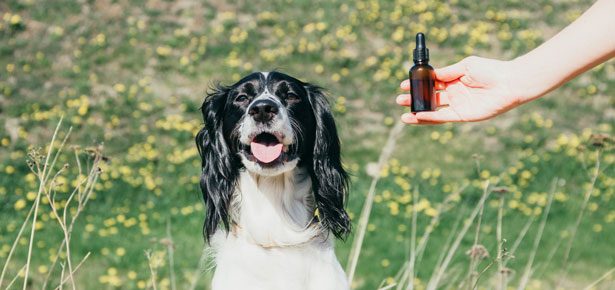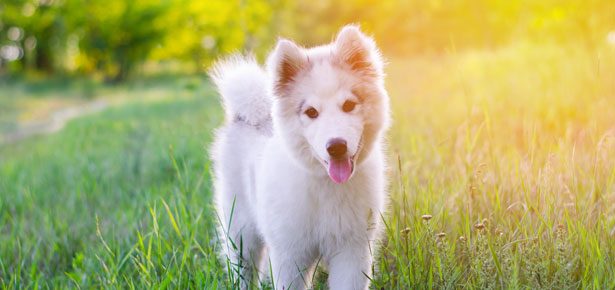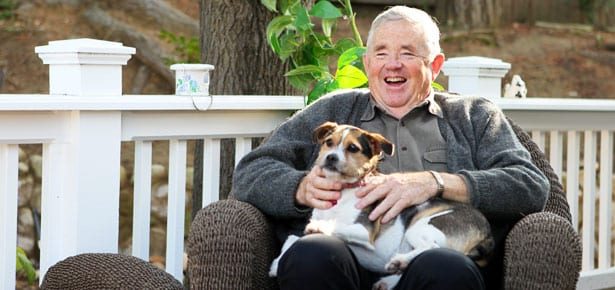
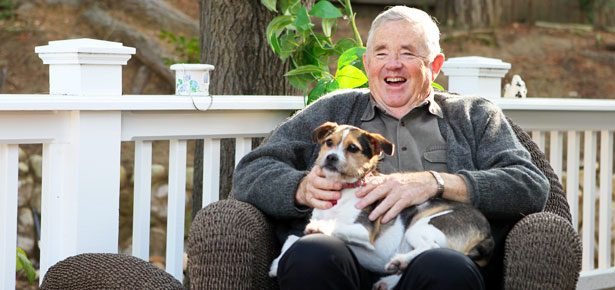
A Perfect Companion for the Elderly
The power of pet therapy is thought to be stronger than any medication, not only for people going through tough times or in poor health, but also for the elderly as well. Proven to increase mental alertness, build self-esteem, and decrease loneliness, pets can provide a warm and fulfilling relationship that older people—or indeed all of us—desire.
“Pet ownership for older people can be very beneficial by giving them something to love and care for, as well as a companion in the home, especially if they live alone,” said Dr. Sonny Presnal, Director of the Stevenson Companion Animal Life-Care Center at the Texas A&M College of Veterinary Medicine & Biomedical Sciences (CVM). “I don’t believe there are any appreciable risks, providing that good decisions are made in the choice of a pet for older people.”
Having the responsibility of caring for a pet can be a healthy situation for most elderly people. Sometimes, a pet can be the only reason that he or she feels a need to get up in the morning; it provides them with a sense of purpose. “It gives older pet owners something to care for, which in the case of a dog may mean they are out taking the dog on a walk instead of sitting in the house,” said Presnal. In addition, there are many studies that attribute pet ownership to relieving stress, lowering blood pressure and cholesterol levels, and bettering mental health.
Not only do pets help the elderly overcome various health ailments, but also they can significantly decrease their owners’ sense of loneliness. As you probably already know, pets are automatic people magnets and are often a great conversation starter. People love talking about their pets, and others love interacting with the pets they encounter. This can often lead to new friendships and can provide beneficial social interactions that elderly people may not have otherwise had the chance to experience. This, in addition to simply having something to care for, significantly decreases loneliness and accompanying depression.
When choosing a pet, you must take into consideration the limitations of the elderly person’s physical and mental health. “A large, active dog may not be suitable for older people, due to the risk of injury to the owner from an accidental collision that may cause them to fall,” said Presnal. “Fractures from falls can be very dangerous for older people, especially hip fractures.”
A young puppy or kitten may not be a suitable choice either, due to their high maintenance requirements. An older dog or cat that has matured past their ball of energy phase can be a perfect companion. Not only does adopting an older pet benefit their owner, but may save the pet from euthanasia, as often people are (unfortunately) not interested in adopting older animals.
A concern that many elderly people considering pet ownership face is the possibility that they will no longer be able to care for their pet later on. This can happen if their health suddenly decreases, or if the animal becomes in need of extensive veterinary care. “There are many mobile veterinary services available for older persons who may not drive or who otherwise have problems transporting their pets for veterinary care,” said Presnal. There are also programs, such as the Stevenson Center, that provide for the physical, emotional, and medical needs of companion animals when their owners can no longer do so.
The Stevenson Center, which Presnal directs, is a unique program that has veterinary students who live at the center to provide companionship and care for the resident pets at night and on weekends and holidays. “As part of the CVM, the resident pets receive the ultimate in veterinary care at the Veterinary Medical Teaching Hospital,” said Presnal. “We believe the level of care and companionship is unequaled by any other similar program.”
It is proven that animals can help enrich the lives of their owners both physically and emotionally, and this can be especially true for the elderly. The right pet can provide them with a sense of purpose, nonjudgmental acceptance, and companionship that both animals and humans need to stay happy and comfortable.
Join the newsletter and never miss out on dog content again!
"*" indicates required fields
By clicking the arrow, you agree to our web Terms of Use and Privacy & Cookie Policy. Easy unsubscribe links are provided in every email.
